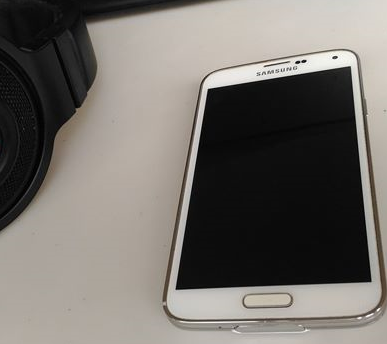The Samsung Galaxy S21 series is one of the best offering from the Korean manufacturer to date. The series contains three devices, all of which are flagships. These devices have top-notch specs and all the bells and whistles Samsung could add to a device. The series comes with the latest One UI 3.1, based on Android 11. One UI 3.1 offers excellent opportunities for customization, which is enough for many users. However, some users want to get the most out of their devices.
Some users want to root their devices to reach it’s true potential. In this article, we will guide you on “How to Root the Samsung Galaxy S21 Series on One UI 3.1 with Magisk“. Magisk is the best tool for rooting a device and with the release of the latest Magisk Canary, users can now root their Samsung Galaxy S21 series. Everyone knows that there are two versions of the Galaxy S21 devices. The devices released in China, the USA, and Korea come with the Snapdragon chipset, while the devices released in the rest of the world will come with Samsung’s own Exynos silicon. This article is applicable to both the Exynos and Snapdragon variants.
The Basics
With Root, the users will entirely control the device’s firmware and have more customization options.
However, the company has made some restrictions on rooting the device. Samsung restricts directly rooting the device. You have to unlock the bootloader to root the Samsung Galaxy S21 series. It will wipe all data for the first time when you first unlock your bootloader on the Galaxy S21. There is also Samsung Knox, which users need to know about as well. Knox is a secure vault where users can hide/store their important files and apps to prevent others from sneaking in.
Also Read:
How to install the Android 12 Developer Preview
When users unlock their bootloader, Knox gets tripped and in some countries, the device’s warranty will now be rendered void, meaning users can’t claim the warranty in those countries.
Rooting Samsung Galaxy S21 devices:
Installing Magisk on our device will be done in three steps: Unlocking the bootloader, patching the firmware, and installing it via ODIN. The final step will be booting the device when Magisk is installed. As mentioned, all your mobile data will be wiped when you unlock the bootloader. Make sure to Backup your data so you keep all important data. Installing Magisk will also trigger Knox, indicating an interference in the firmware. In some countries, it will void the device’s warranty.
Step 1: Unlocking the Bootloader:
Follow the steps below to unlock the Samsung Galaxy S21 Bootloader. Please note that unlocking the bootloader is only available in certain versions of the Galaxy S21 lineup, such as the Exynos variant and The Snapdragon variant sold in select countries, such as China.
- Open device settings
- Open About phone and then tap on software information
- Search for the build number and tap it seven times to enable developer options.
- Go back to the main setting page and search for the developer options.
- Within developer options, search for OEM unlocking. Please tap on the toggle next to the option to enable it.
- Now, Power off your phone.
- Connect your device to your PC via a USB cable.
- Long press the volume up and volume down button at the same time. Your device will turn on in Download Mode.
- There will be a warning on the display. Just long-press the volume-up button again.
- Your device will display an Unlock Bootloader screen. Again, long-press the volume up button to unlock your bootloader. It will also wipe all your device data.
- Your device will automatically reboot and a device setup process will start. Set your device up by going through this process.
- Now, your device bootloader will be unlocked and you can check it by going into the settings. Follow the same steps mentioned above to enable developer options.
Step 2: Installing the Firmware with Magisk:
We need the latest stock firmware of the Samsung Galaxy S21 series. Make sure that you download the firmware which matches the one on your device.
You can learn how to download the firmware from:
Once you have downloaded the firmware file on your PC, extract it to get all the files. In the extracted files, a firmware file begins with the “AP.” Look for the file that starts with “AP” and copy it to your device’s internal storage. As mentioned, we need the latest Magisk Canary to root the device.
Patching the Firmware with Magisk
So download and install the Magisk canary on your device from here. Make sure to download the “Canary” version from the link, as we need that. The stable version of Magisk doesn’t support the Samsung Galaxy S21 series as of writing this article.
Transferring the Patched Firmware
Once Magisk is installed on your device, please open it and tap on install in the Magisk section. Then tap on the “Select and Patch a file” option. Browse for that file that starts with “AP” that you copied to your device’s internal storage. Once you select that file, tap the “Let’s go” button at the top.
You will see that “AP” has several other files. Magisk will just copy these files and patch them onto your device. When it’s done, close Magisk and search for the archived image file on the device’s internal storage. This archived file will be stored in the download folder of your internal storage. It has the name magisk_patched.tar. Copy magisk_patched.tar onto your PC in the same folder where you extracted the firmware.
Power your device off and boot it in Download Mode. To do that, first completely Power off your device. Then grab a USB cable, press and hold both the volume up and down buttons and insert a USB cable into your device while still holding the volume up and down buttons. A blue warning screen will appear.
Press the volume up button again to enter the Download Mode.
Flashing the Firmware with Odin
Now, you must open Odin on your PC and flash the firmware file on your device again. If you need to learn more about the ODIN, click the link. Please note that when you have your Galaxy S21 Ultra device connected to your PC with a USB cable and you’re in Download Mode, you need to make sure that the last log on the left says “Added!!”. In Odin, click on the BL tab. A window will open where you need to select the BL file. Search for the extracted files you downloaded earlier and choose the file that starts with “BL.” Then click on the AP tab. Again, a window will open where you need to select the AP file. Now, you must choose the file you copy from your device to the PC—the file with the name magisk_patched.tar.
In the CP tab, select the file that starts with “CP” from the extracted files. Do the same for the CSC tab. When all the files are selected in their proper tab, click on the start button at the bottom. The process will start. This will copy all the files and flash them onto your device one by one. It will take some time, so be patient and wait.
Completing the Setup
Once it’s done, the device will auto-reboot, assuming that you didn’t uncheck the auto-reboot button in Odin. When you see the pass written on the status bar at the top, your device will auto-reboot. In the first reboot, you will see a warning screen asking you to press the power button to continue. Please don’t press the power button; wait until it moves to the next screen. It is the first boot, and it will take some time.
Once the device boots, it will take you to the Android setup screen. Setup your device quickly to move forward. When the device boots, you have to download and install the Magisk tool again, just like you did previously. When you have installed Magisk again and set it up, it will reboot the device again. The root process is completed, and you can check for root access through an application like Root Checker on the Play Store.
This is a step-by-step guide on how to root your Samsung Galaxy S21 series using the Magisk tool.
Experiencing difficulties with your Device, check out our “How To” page on how to resolve some of these issues.





